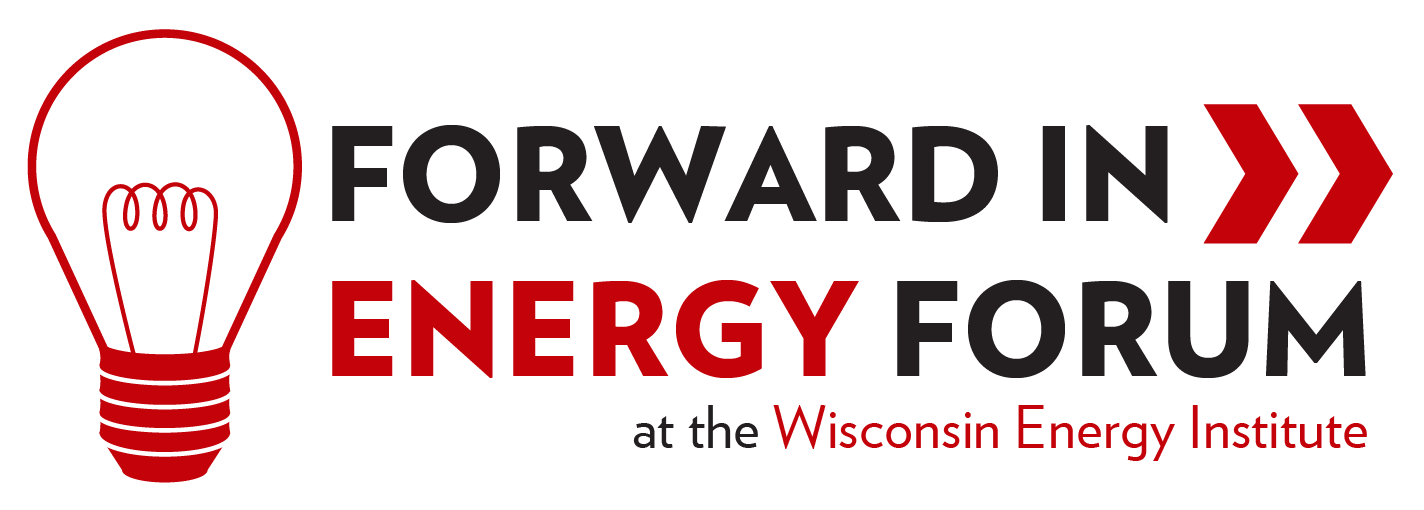
What are the opportunities and challenges for supporting women in clean energy, from the classroom to the boardroom? How can women students find a way to get into energy research? How can we inspire women in the energy workforce to enter – and stay – in the field?
Join us for a mini-symposium on March 6 as Kristen Graf, Women of Renewable Industries and Sustainable Energy (WRISE) executive director, will deliver a keynote on increasing participation by women in STEM fields by building community, promoting education, and cultivating leadership. Following, a panel of UW–Madison researchers will talk about the challenges they have faced in advancing their careers in academia, and how the next generation of women in STEM might succeed. A networking reception will follow at 5 p.m.
View slides from keynote speaker, Kristen Graf.
This event is co-sponsored by the Women in Science and Engineering Leadership Institute (WISELI).

Keynote Speaker
Kristen Graf
Executive Director Women of Renewable Industries and Sustainable Energy (WRISE)
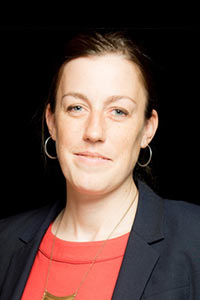 As WRISE’s Executive Director, Kristen is thrilled to be able to merge her passions for renewable energy and the advancement of women within such an incredible organization.
As WRISE’s Executive Director, Kristen is thrilled to be able to merge her passions for renewable energy and the advancement of women within such an incredible organization.
In 2013, Kristen was recognized for her work with WRISE (then WoWE) and given the Award for Mid-Career Achievement in Mentoring and Education by the US Department of Energy’s C3E Initiative.
Before making her way to WRISE, Kristen spent five years with the Union of Concerned Scientists (UCS) in Boston. As the Clean Energy Program Coordinator and Research Associate at UCS she worked on renewable energy policy at the state and national level with particular focus on wind and biomass energy in New England as well as working to hone some of her nonprofit management skills.
In 2011, Kristen was named a Senior Fellow in the Environmental Leadership Program’s Eastern Region. She received her Bachelors Degree in Agricultural and Biological Engineering from Cornell University. During her time there, Kristen worked for Cornell Cooperative Extension assisting in efforts to expand the role of renewable energy in agriculture around New York State.
In addition to her love of renewable energy, Kristen has spent many years working to develop women leaders. She has served as the Co-Moderator of the National Network of Presbyterian College Women and on the National Coordinating Team of Presbyterian Women. At Cornell, she was an active member of the Executive Team of the Cornell University Chapter of the Society of Women Engineers.
Panel Moderator
Kristyn Masters
Vilas Distinguished Professor, H.I. Romnes Faculty Fellow, & Department Vice Chair, Biomedical Engineering
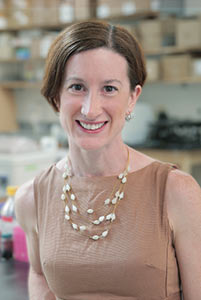 Masters's lab combines biomaterials, tissue engineering, and cellular/molecular biology to create in vitro models of diseased tissues and organs. They apply this strategy to the study of several different types of diseases. For example, in the case of calcific aortic valve disease (CAVD), we employ disease-mimicking in vitro models to decipher CAVD pathogenesis and identify cellular and molecular events that may be targeted to stop its progression. Meanwhile, in breast cancer and age-related macular degeneration, they create complex models of the disease microenvironment to elucidate what factors regulate the cellular response to existing pharmacological treatments, and what pathways can be targeted to improve drug efficacy.
Masters's lab combines biomaterials, tissue engineering, and cellular/molecular biology to create in vitro models of diseased tissues and organs. They apply this strategy to the study of several different types of diseases. For example, in the case of calcific aortic valve disease (CAVD), we employ disease-mimicking in vitro models to decipher CAVD pathogenesis and identify cellular and molecular events that may be targeted to stop its progression. Meanwhile, in breast cancer and age-related macular degeneration, they create complex models of the disease microenvironment to elucidate what factors regulate the cellular response to existing pharmacological treatments, and what pathways can be targeted to improve drug efficacy.
Prof. Masters is also the Faculty Director for the Women in Science and Engineering Residential Community at UW-Madison.
Panelists
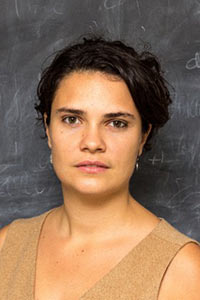 Raluca Scarlat
Raluca Scarlat
Assistant Professor, Engineering Physics
Raluca Scarlat's research group investigates the transport of tritium and other radioisotopes in molten fluoride salts and graphite fuel elements. She studies freezing transients of fluoride salt coolants from the point of view of thermal-hydraulic phenomenology, nuclear reactor transients, and safety analysis.
Tina Nielsen
Associate Director, Great Lakes Bioenergy Research Center
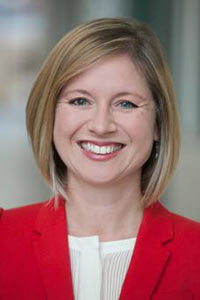 Tina Nielsen joined the GLBRC as Associate Director in 2014. Nielsen oversees GLBRC’s external campus, government and industry relations and is also responsible for internal administration, including oversight of GLBRC’s Enabling Technology Team and other support areas. Nielsen holds a PhD in Marine Micropaleontology; has extensive experience in geochemical research including strontium, rubidium, oxygen, and carbon stable isotopes; and has held industry positions focused on energy research and innovation since 2006.
Tina Nielsen joined the GLBRC as Associate Director in 2014. Nielsen oversees GLBRC’s external campus, government and industry relations and is also responsible for internal administration, including oversight of GLBRC’s Enabling Technology Team and other support areas. Nielsen holds a PhD in Marine Micropaleontology; has extensive experience in geochemical research including strontium, rubidium, oxygen, and carbon stable isotopes; and has held industry positions focused on energy research and innovation since 2006.
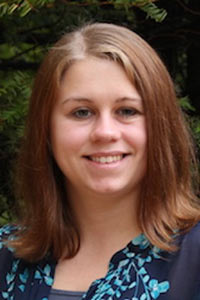 Andrea Hicks
Andrea Hicks
Assistant Professor, Civil & Environmental Engineering
Andrea Hicks specializes in using life cycle assessments and modeling to quantify environmental impacts of products and processes. Her work includes industrial ecology, or using basic ecological principles to better understand and design human products. For example, Hicks is thinking about ways to design a product where the waste could become the building blocks for another product or service. Her interests include agent-based modeling, the rebound effect, and environmental implications of technology.
